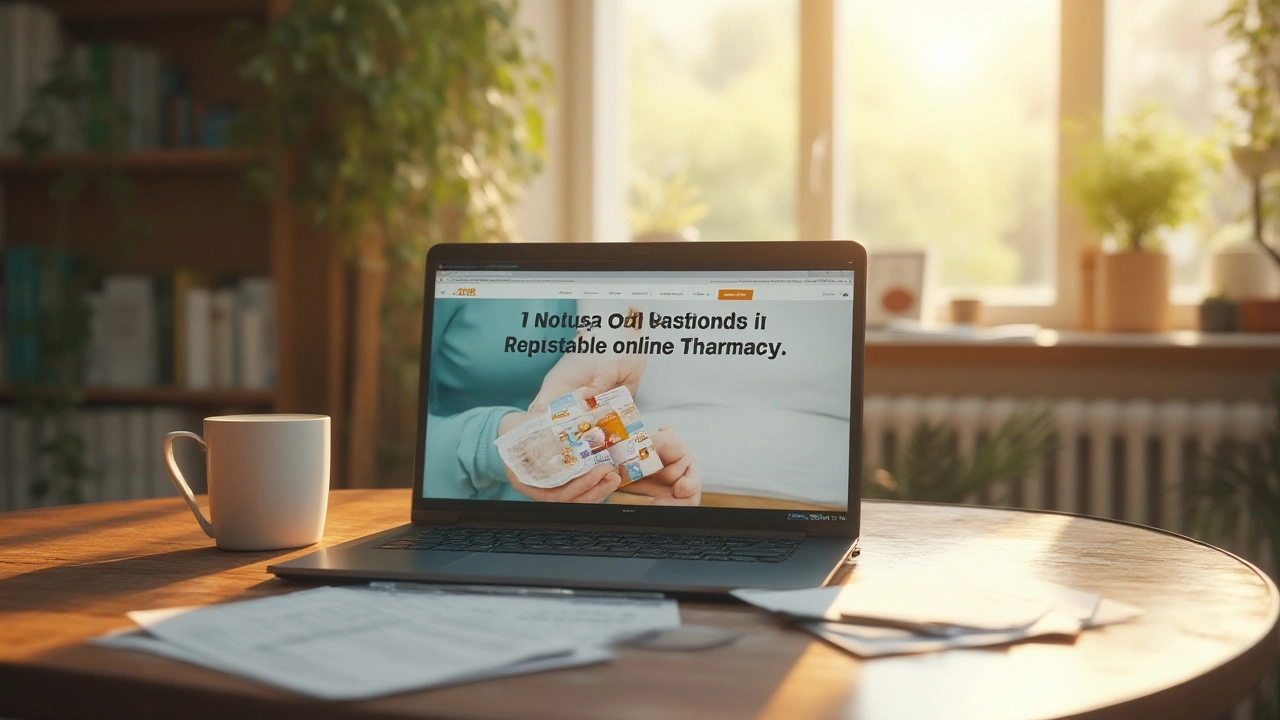Esbriet for IPF: What You Need to Know
If you or a loved one has been diagnosed with idiopathic pulmonary fibrosis (IPF), you’ve probably heard the name Esbriet. It’s the brand name for pirfenidone, a pill that can slow the scar‑building process in the lungs. In simple terms, Esbriet helps keep the lungs from getting stiffer, which means you can breathe a bit easier for longer.
IPF is a tough condition because it gets worse over time and there’s no cure. The goal of treatment is to slow down that decline, improve quality of life, and give you more time to enjoy everyday moments. Esbriet is one of the two medicines approved in many countries for this purpose, the other being nintedanib.
How Esbriet Works in the Lungs
Pirfenidone isn’t a bronchodilator that opens airways. Instead, it blocks a chain of events that lead to scar tissue forming. Think of it like putting a brake on a car that’s speeding down a hill – the brake doesn’t stop the car completely, but it slows the descent.
Studies have shown that patients on Esbriet tend to lose less lung function each year compared with those not taking it. The drug reduces inflammation and the activity of cells that lay down collagen, the protein that makes scar tissue. Less collagen means the lungs stay more flexible.
The usual dose is 801 mg three times a day, taken with food to reduce stomach upset. Doctors start you at a low dose and increase it over two weeks, so your body can adjust. Blood tests are done regularly to watch liver function, because pirfenidone can affect the liver in some people.
Practical Tips for Using Esbriet
Here are some everyday tricks that make taking Esbriet easier:
- Take with meals: A big breakfast, lunch, and dinner work best. Food helps your stomach handle the medicine.
- Stay hydrated: Drinking plenty of water can cut down on nausea, a common side effect.
- Watch for sun sensitivity: Pirfenidone can make your skin more prone to sunburn. Use sunscreen and wear a hat when you’re outside.
- Know the warning signs: If you notice yellowing of the skin or eyes, dark urine, or persistent nausea, call your doctor right away. These could be signs of liver trouble.
- Don’t stop abruptly: If you need to pause the medication, your doctor will guide you on how to taper it safely.
It’s also a good idea to keep a medication diary. Write down the time you take each dose, any side effects, and how you feel overall. This record helps your doctor fine‑tune the treatment.
Some people wonder about drug interactions. Avoid taking certain anti‑fungal medicines (like itraconazole) without medical advice, because they can raise pirfenidone levels in your blood. Alcohol should be limited, as it adds extra strain on the liver.
If cost is a concern, check if your insurance covers Esbriet or if a patient‑assistance program is available. Many pharmaceutical companies offer help for those who qualify.
Living with IPF means staying on top of appointments, lung function tests, and medication schedules. Esbriet is only one piece of the puzzle. Pulmonary rehab, oxygen therapy when needed, and a healthy lifestyle all play a role in keeping symptoms in check.
Bottom line: Esbriet can slow the scar‑building process in IPF, but it works best when combined with regular monitoring and good self‑care habits. Talk openly with your doctor about any worries, and keep track of how you feel. With the right plan, you can keep breathing easier and enjoy more of the moments that matter.

Curious where and how to buy Esbriet online? Here’s your current, practical guide with tips, safe sources, and what to watch for in 2025.
- Read More